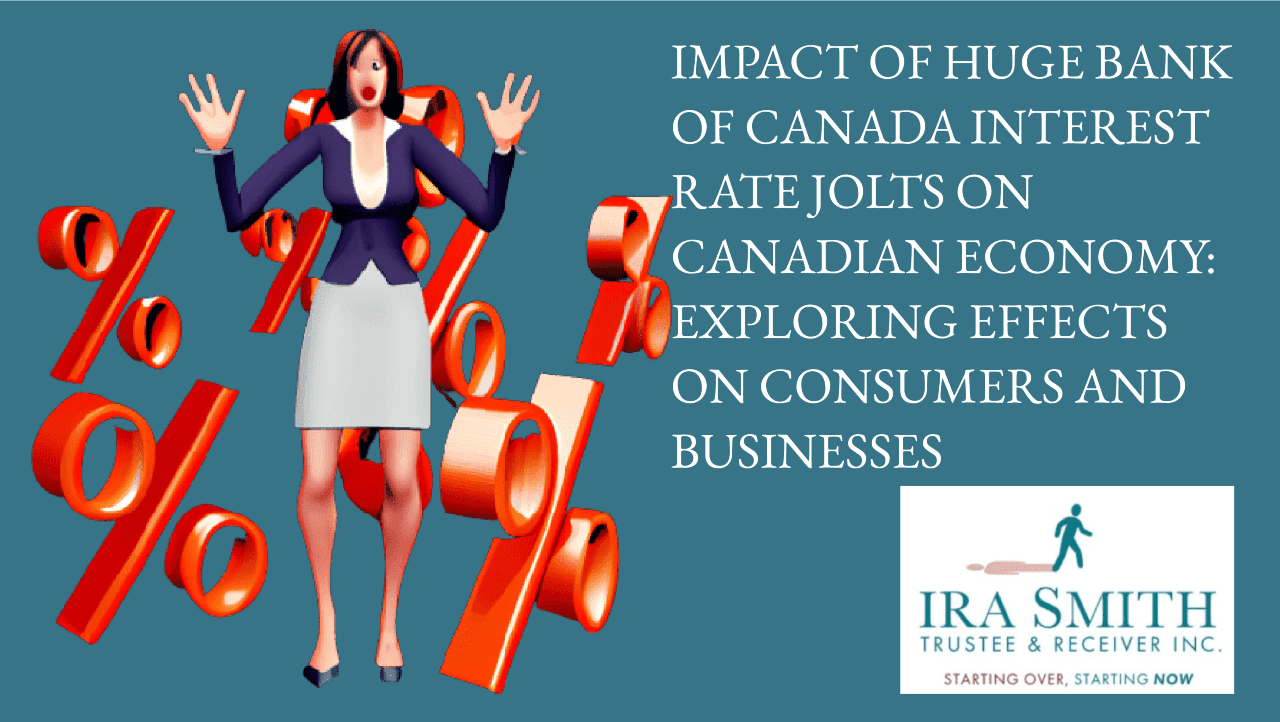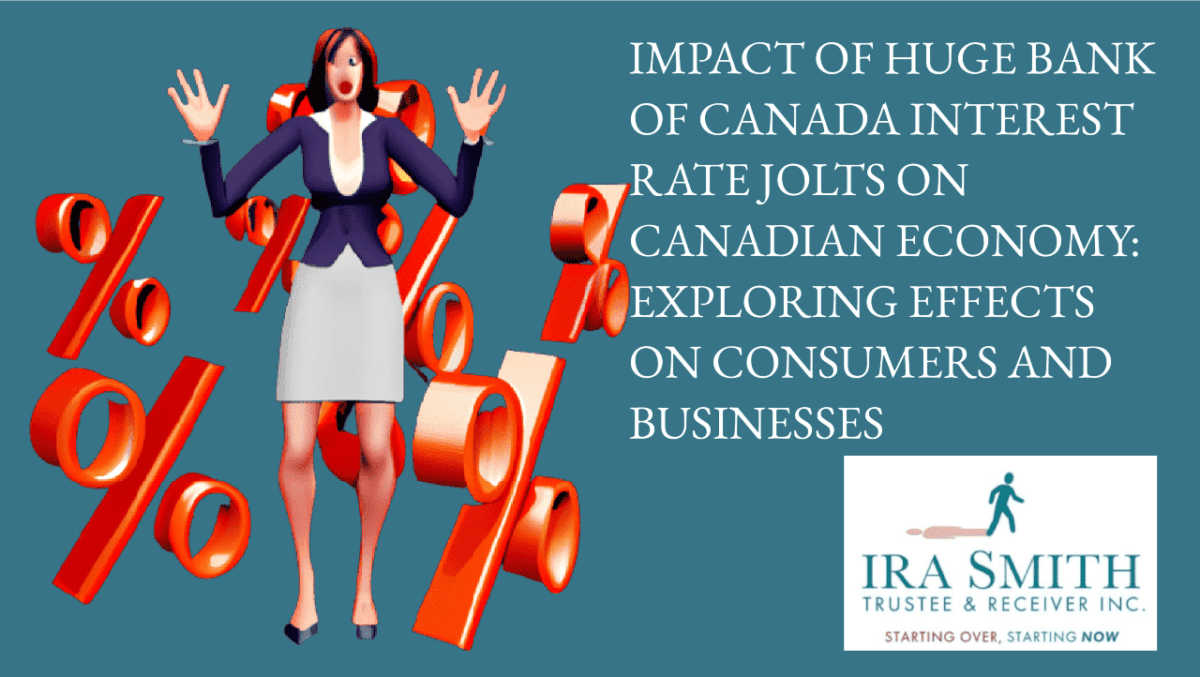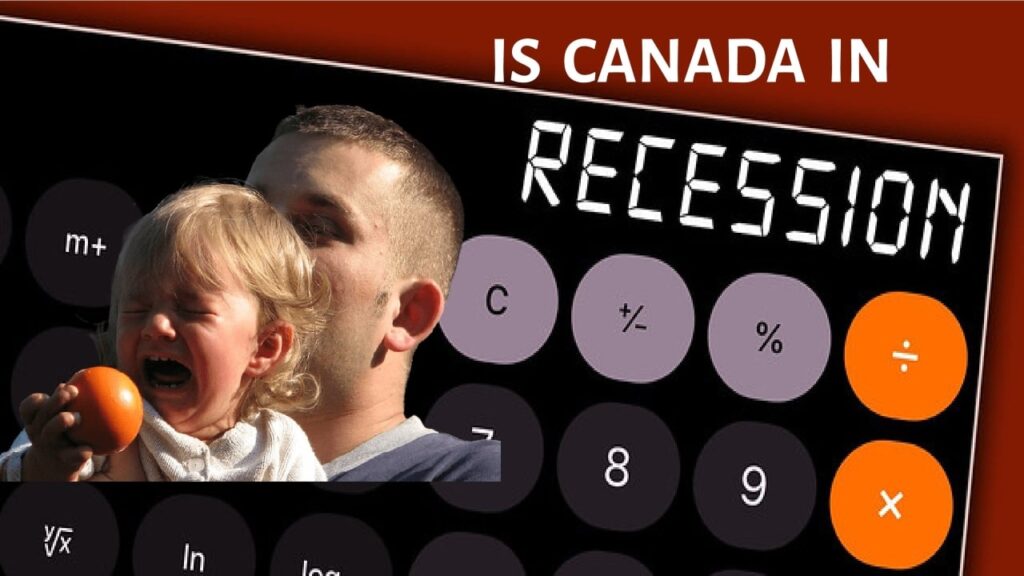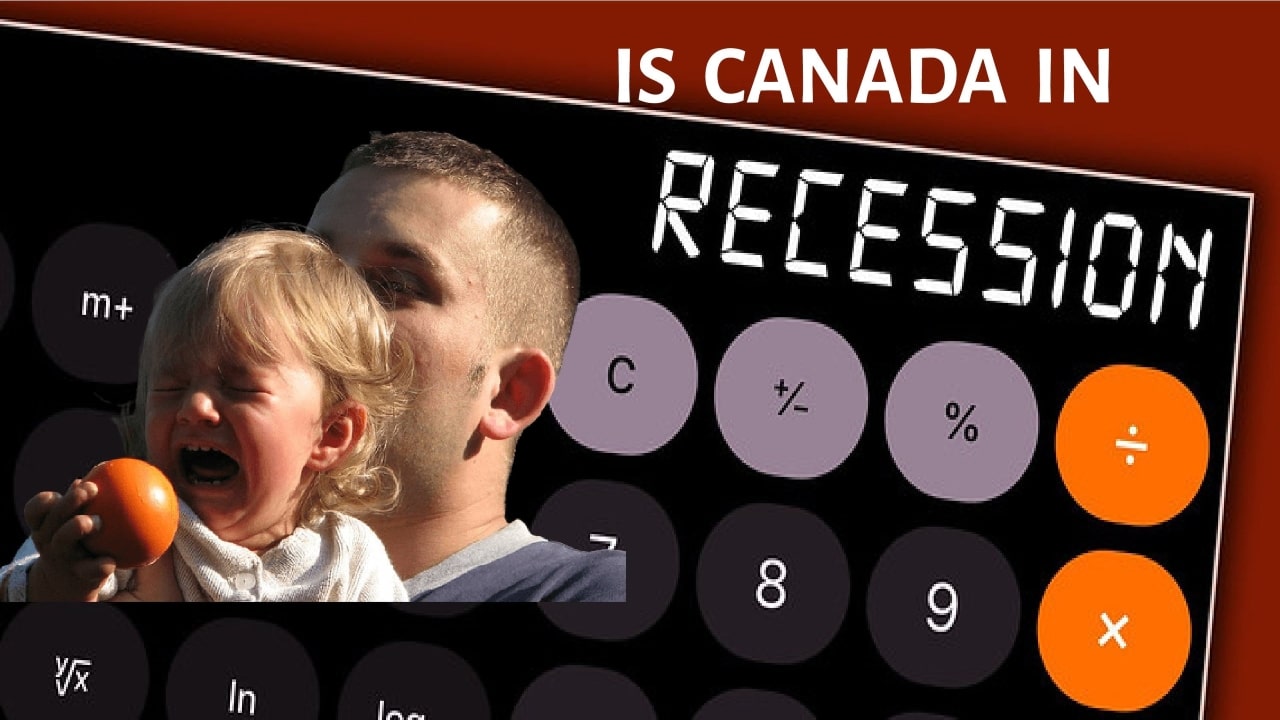Bank of Canada interest rate: Introduction
Step right in and welcome to Brandon’s Blog, where this week I shall delve deep into the intricate nuances of the Bank of Canada interest rate policy, uncovering its profound implications for the Canadian populace and enterprises. Witnessing the recent implementation of an interest rate hike by the Bank of Canada, it becomes paramount to comprehend the reasoning behind this pivotal decision and discern its multifaceted repercussions across diverse sectors of the Canadian economy.
Comprehending the influence of rates of interest on the Canadian economy is important for individuals and companies alike. The Bank of Canada plays a pivotal role in setting interest rates in Canada. In this way, the Bank of Canada interest rate policy has a straight effect on borrowing rates as well as, consequently, spending and also investment choices. For consumers, adjustments in the rate of interest can impact mortgages, credit card rates of interest, as well as the cost of all other loan products.
Businesses, on the other hand, factor in the rate of interest they pay in their decision-making, especially in financial investment strategies as well as accessing resources. Therefore, a comprehensive understanding of the Bank of Canada rate of interest policy as well as its consequences is essential for making enlightened financial decisions in Canada’s dynamic financial atmosphere.
Through a professional and all-encompassing perspective, albeit from someone who is not an economist, we shall embark upon a journey to explore the wide-ranging effects stemming from the continuing Bank of Canada aggressive interest rate hikes, shining a beacon of understanding upon the potential trials and prospects that await us. Will there be at least one more additional rate hike in 2023? The experts are mixed in their forecasting. After the 10th interest rate hike in April 2022, analysts felt the Bank of Canada would take a rest. They did this for exactly 1 month and then continued raising rates in June and July. Accompany me as we skillfully navigate this intricate landscape and the extensive ramifications it begets.
Overview of Bank of Canada
The central bank of Canada is none other than the Bank of Canada, entrusted with the job of supervising the economic as well as financial well-being of the country. Developed back in 1934, this institution has genuinely developed into an important player in shaping economic plans, handling the country’s currency as well as rising cost of living levels, and supervising the security of the Canadian financial system.
Operating under a Board of Directors, which includes the Governor and Deputy Governors, this management framework holds the obligation of making certain that the objectives of the organization are duly attained. With a solid commitment to transparency and responsibility, the Bank of Canada constantly publishes reports as well as financial statements to make sure that the general public is well-informed regarding its actions as well as the choices it makes.
Its function in the Canadian economy is indisputably vital, and it continues to satisfy a considerable duty in directing the security, development, as well as prosperity of the Canadian economic climate.

Some history and definitions of the Bank of Canada’s interest rates
There are some basic definitions that are important to understand when discussing the Bank of Canada interest rate policy. Here they are:
- Policy rate: The policy interest rate set by the Bank of Canada plays an important role in shaping the primary monetary factors within the Canadian economy. Meeting analysts expectations, following the recent 25-basis-point-rate hike in this month’s rate announcement, the current policy rate stands at 5%.
- Bank rate: Sometimes the policy rate is also referred to as the bank rate.
- Benchmark interest rate: Another name for bank rate or policy rate is the benchmark rate.
- Overnight rate: The overnight rate, which signifies the price at which financial institutions extend funding to each other, holds immense relevance in the general performance of the financial system. The overnight rate plays a vital role in identifying the loan costs for banks and eventually, for consumers and companies. By very closely monitoring variations in the overnight rate, banks have the capability to adjust their lending methods, ensuring the security and also the performance of the financial market.
- Prime lending rate: The prime interest rate, also referred to as the “prime rate,” is the rate of interest commercial banks charge their most credit-worthy clients. It is a baseline rate whereupon all floating rate loans are based (for example, prime + 3%). The prime rate is established by financial institutions in a competitive, or some more cynical may say lockstep, fashion. The prime rate in Canada is presently 7.20% after the last rate increase.
- Deposit rate: The deposit price is the rate of interest paid by banks on cash deposits of account owners.
Understanding the purpose of Bank of Canada interest rate policy
Explanation of what the Bank of Canada interest rate is
The Bank of Canada interest rate policy is one of the indispensable monetary policy tools employed by the Bank of Canada to govern the surging cost of living and bolster the economy. The interest rate determined by the Bank of Canada impacts the borrowing expenses for all debtors across the nation.
When the Bank of Canada heightens or diminishes its principal interest rate, it influences the rates at which Canadians can obtain funds, such as residential mortgages, auto loans, and lines of credit. It also affects the return that banks will provide when you invest with them, in addition to how the stock market will respond to its perception of the future trajectory of the Bank of Canada interest rate. Grasping this is crucial to comprehending its ramifications on the Canadian economy.
Factors influencing changes in the Bank of Canada interest rate
The Bank of Canada interest rate is a vital monetary policy tool used to regulate the nation’s economy. A number of elements affect changes in the rate of interest, such as the inflation rate, the expansion or contraction of the economy, employment rates, and international economic issues. The Bank of Canada carefully checks these indicators to analyze the state of the economy and choose what interest rate adjustments to make, if any.
Elements such as high inflation, a strong economy, and a reduced unemployment rate might suggest a need for higher interest rates to suppress the economy from overheating. Conversely, weak economic conditions might lead to lowering the central bank rate to boost borrowing as well as investment. These elements play a crucial function in establishing what the central bank pegs the Bank of Canada interest rate at which will affect consumers’ and businesses’ behaviour.
The process of setting and adjusting the Bank of Canada interest rate
The Bank of Canada holds a pivotal position in overseeing the nation’s economy by means of its policy on interest rates. The bank consistently examines and modifies interest rates contingent upon diverse economic factors, including inflation, employment, and GDP expansion. This undertaking encompasses comprehensive scrutiny and evaluation of existing economic circumstances, both within the country and across the globe.
Right now the Bank of Canada seems to be on an aggressive campaign to fight inflation, with the sole aim of wrestling it down to its inflation-control target of annual inflation of 2% per annum. The problem is that some of the biggest drivers currently fuelling inflation, such as government spending, energy and food prices will not react to the Bank of Canada’s actions. It has also been reported that the tightening of the Canadian economy is larger than the US Fed’s actions in the US when comparing the relative size of the two economies.
Higher prices and staff shortages are leading to wage pressures on all businesses. Ironically, Statistics Canada reported that one of the biggest factors driving inflation for the 12-month period ending April 2023 was the cost of mortgage interest! Anyone who did not change their variable rate mortgage into a fixed rate mortgage when rates were super low knows this only too well.
Once the decision is made, the bank communicates it to financial institutions, which in turn affects borrowing rates for consumers and businesses. The Bank of Canada’s interest rate policy is implemented with the aim of maintaining price stability, fostering economic growth, and ensuring financial stability in Canada.

Bank of Canada interest rate effect on consumers
Impact of interest rate changes on borrowing costs (mortgages, loans, credit cards)
The Bank of Canada interest rate planning has major implications for consumers across Canada. One cannot ignore the effect that revolves around the ramifications of all borrowing costs. When the central bank rate experiences an upswing, borrowing costs escalate at all financial institutions, potentially posing challenges for individuals seeking mortgages or requiring other personal loans.
Moreover, increased interest rates lead to higher monthly payments on variable-rate financial obligations. This is designed to instill an added sense of prudence among consumers regarding their spending habits, simultaneously fostering an inclination towards savings. Grasping the consequences of interest rate fluctuations on loan expenses assumes paramount importance in individuals’ financial strategizing and decision-making.
Influence on consumer spending and saving habits
The Bank of Canada interest rate policy has a significant impact on consumer spending and also saving behaviours. When interest rates climb, borrowing costs increase, affecting the cost of all mortgages and other personal loans. This often results in a decline in consumer spending as people try to conserve cash. Conversely, as we have seen over the last many years when interest rates are low, borrowing ends up being even more inexpensive, motivating consumers to spend and stimulate economic growth. So, any kind of adjustments to interest rates by the Bank of Canada directly influences consumers to act in a way the Bank of Canada feels is best for the Canadian economy.
Effects on the housing market and affordability
The Bank of Canada’s policy regarding interest rates holds significant sway over the housing market. When the interest rate rises, the expense of mortgage financing also escalates, rendering homeownership more costly. This circumstance has the potential to trigger a downturn in the housing market as the demand diminishes. Furthermore, when it comes to mortgage renewals, the augmented interest expense might pose financial challenges for certain individuals.
Conversely, when the interest rates are decreased, housing becomes more affordable, thereby stimulating the housing market. Consequently, fluctuations in the Bank of Canada’s interest rate assume a pivotal role in influencing the dynamics of the real estate market in Canada.
The overall effect on Canadians
The Bank of Canada’s policy on interest rates has significant implications for personal finances, including debt management, for Canadian consumers. As rates of interest change, as stated above, borrowing costs change along with the Canadian economy. The overall financial wellness of Canadians can also change.

Bank of Canada interest rate: Effect on businesses
Influence on borrowing costs for businesses
The Bank of Canada interest rate policy has a significant impact on the borrowing costs for businesses in Canada, inevitably affecting their financial investment choices which affects their growth. When the rates of interest are reduced, companies can take advantage of reduced borrowing expenses to make new business investments, aimed at expanding their operations.
On the other hand, when the interest rates are higher, borrowing ends up being more costly, which discourages companies from making those new investments thereby putting their activities on hold or even contracting business operations. Consequently, the Bank of Canada’s monetary policy moves plays a crucial function in how the economic landscape changes for companies, influencing their growth prospects, and general financial stability.
Effects on employment and wages
The Bank of Canada interest rate policy plays an essential role in shaping both employment rates and the wage landscape across Canada. A rise in the rate of interest raises borrowing costs for companies, resulting in decreased financial investments. This can have an influence on employment rates as businesses won’t hire more people as growth plans are put on hold.
In fact, companies may even downsize their workforce as other input costs increase. This downsizing can also affect worker productivity as businesses try to do the same or more with fewer people. For that reason, it is necessary for businesses to carefully keep an eye on the Bank of Canada’s interest rate choices as they navigate the intricacies of maintaining their workforce and offering fair wages in an ever-changing financial climate.
Implications for business growth and economic stability
The Bank of Canada’s central interest rate policy plays an essential function in the Canadian economy, with significant effects on businesses. When the interest rates are raised, borrowing costs for businesses climb, impacting their investment decisions and ultimately their growth. This, consequently, can affect profitability and also employment opportunities, as businesses may end up being more cautious in their investing and workforce-level choices.
Alternatively, a decline in the rate of interest might incentivize borrowing and urge companies to spend and invest. Eventually, the decisions taken by the Bank of Canada interest rate policy will shape the trajectory of business investments and spending, thereby shaping the Canadian economy.
Relationship between interest rates and economic growth
The Bank of Canada’s interest rate policy plays a crucial role in shaping the overall Canadian economy. The relationship between interest rates and economic growth cannot be overlooked. When the central bank adjusts interest rates, it directly impacts borrowing costs for consumers and businesses alike. By raising interest rates, the Bank aims to restrain inflationary pressures and promote sustainable economic growth. On the other hand, lowering interest rates can stimulate spending and investment, fueling economic expansion. Thus, understanding the connection between interest rates and economic growth helps policymakers and businesses make informed decisions to foster a stable and prosperous Canadian economy.
Influence on inflation and consumer prices
The Bank of Canada, being Canada’s central banker, exerts a substantial influence on the inflationary trends prevailing within the Canadian economy. When the rates of interest experience a decline, borrowing costs diminish, thereby encouraging increased consumer spending and business investments. This surge in demand can eventually trigger a corresponding rise in costs and contribute to inflationary pressures.
On the other hand, when the rates of interest undergo an upswing, borrowing costs escalate, which in turn curtails spending and investment activities. Such measures aid in regulating the mounting cost of living by constraining demand and mitigating general price hikes. Therefore, the choices made by the Bank of Canada interest rate policy play a critical role in upholding price stability and fostering a well-balanced Canadian economy.
Implications for monetary policy and government regulations
Changes in interest rates directly influence the borrowing costs of both companies and consumers by influencing their choices regarding spending and financial investments. Higher interest rates are currently being used as a financial policy device focused on curbing inflationary pressures in the Canadian economy.
In addition, interest rate adjustments can also shape government policies, as policymakers aim to cultivate a financial atmosphere that provides the world with the message that the Canadian economy is stable. The Bank of Canada applies its interest rate choices, thinking about the prospective repercussions for both monetary policy as well as federal government guidelines.
Strategies for Consumers and Businesses
Tips and advice for consumers managing finances in a changing interest rate environment
In a constantly shifting landscape of interest rates, it becomes crucial for individuals to skillfully navigate their finances. Here, I present some indispensable pointers and recommendations to assist you in maneuvering through these Bank of Canada interest rate fluctuations:
- Stay in the know: Keep yourself informed about the Bank of Canada interest rate decisions, along with the projections offered through the media regarding their probable direction. Comprehend how these developments might influence your financial circumstances.
- Strategize your budget wisely: In the face of interest rate hikes, it becomes imperative to reevaluate your budgetary plan. Concentrate on essential expenditures and contemplate trimming down on non-essential ones.
- Consider refinancing or renegotiating your loans: Seize the opportunity of a lower interest rate whenever it arises by refinancing or renegotiating your loans, potentially leading to reduced monthly payments.
- Save with purpose: Deposit surplus funds into high-yield interest-bearing accounts or investments that offer superior returns, as a countermeasure against possible increments in loan rates.
- Seek expert guidance: Consult financial advisors who can furnish customized advice tailored to your specific economic objectives and existing financial situation.
By implementing these strategies, consumers can effectively manage their finances within a dynamic interest rate environment, thereby mitigating any potential negative repercussions.
Recommended strategies for businesses to navigate fluctuating interest rates
Fluctuating rates of interest can test the nerve of even the most experienced business owner. To alleviate the impact of changing rates, it is essential to take on particular strategies. Primarily, businesses ought to think about re-financing their present loans to lock into lower fixed-rate loans if it looks like rates are going to rise. Additionally, they should focus on efficiently managing their cash flow by focusing on payment strategies with their suppliers. Don’t be shy about asking for longer payment terms, if possible.
One more very effective method is to diversify their financing sources by exploring alternative financing choices such as equity capital or longer-term debt. Also, it would be most helpful to have more than one lender who deals with you and looks favourably at your business. That way if one lender starts to tighten up the credit line, you have an alternative lender already that you can go to.
In addition, businesses ought to regularly check the trends in interest rates and make informed decisions and choices. By carrying out these carefully crafted tactics, businesses can expertly navigate the consequences of ever-changing rates of interest on their business for financial stability.
Overview of available tools and resources to understand and plan for interest rate changes
Acquiring a general understanding and also properly getting ready for changes in interest rates are critical elements for both consumers as well as companies. To expertly navigate this intricate area, a variety of tools as well as resources are conveniently offered. Banks provide online calculators and interesting short articles, working as useful help for consumers to grasp the influence of rate activities on their home loans, general finances, as well as financial investments.
Additionally, federal government websites and various industry associations equip people with indispensable details relating to interest rates, predictions about interest rate movements and issues relating to the Canadian economy. When it comes to businesses, looking for assistance from experienced consultants and leveraging specialized software programs can assess and highlight critical data in looking at prospective dangers as well as opportunities from the ever-changing interest rates.
By harnessing the power of these tools and resources, individuals and businesses can make sensible choices and flexibly change their economic plans as required.

Bank of Canada interest rate policy: Summary
The Bank of Canada interest rate policy is a major tool in directing the Canadian economic climate. The recent rates of interest hikes have had significant ramifications for both consumers and also businesses. It is important for consumers and businesses to stay informed about the Bank of Canada’s interest rate decisions to make informed financial decisions and adapt accordingly.
The climb in interest rates has resulted in higher borrowing costs for everyone. Along with inflation, many Canadians are having to make hard choices and household debt is climbing. To a certain extent, it seems like the Bank of Canada’s aggressive action shows that it is disinterested in the plight of many Canadians finding it harder and harder to make ends meet.
I hope you enjoyed this Bank of Canada interest rate Brandon’s Blog. Problems with making ends meet are a growing concern in Canada, affecting individuals of all ages and income levels.
Creating a solid financial plan can be the key to unlocking a brighter and more prosperous future. By taking control of your finances, you can prioritize your expenses, set clear financial goals, and build a strong foundation for your dreams to come true. With the right mindset and approach, financial planning can empower you to regain control, eliminate this issue as a source of stress in your life and find peace of mind.
Individuals must take proactive measures to address financial difficulties and promptly seek assistance when necessary. It is crucial to recognize that financial stress is a prevalent concern and seeking help is a demonstration of fortitude, rather than vulnerability. Should you encounter challenges in managing your finances and find yourself burdened by stress, do not delay in pursuing aid.
Revenue and cash flow shortages are critical issues facing people, entrepreneurs and their companies and businesses that are in financial distress. Are you now worried about just how you or your business are going to survive? Are you worried about what your fiduciary obligations are and not sure if the decisions you are about to make are the correct ones to avoid personal liability? Those concerns are obviously on your mind.
The Ira Smith Team understands these concerns. More significantly, we know the requirements of the business owner or the individual that has way too much financial debt. You are trying to manage these difficult financial problems and you are understandably anxious.
It is not your fault you can’t fix this problem on your own and it does not mean that you are a bad person. The pandemic has thrown everyone a curveball. We have not been trained to deal with this. You have only been taught the old ways. The old ways do not work anymore. The Ira Smith Team uses innovative and cutting-edge methodologies, to adeptly navigate you through the intricacies of your financial challenges, ensuring a resolution to your debt-related predicaments without resorting to the rigours of the bankruptcy process. We can get you debt relief now!
We have helped many entrepreneurs and their insolvent companies who thought that consulting with a Trustee and receiver meant their company would go bankrupt. On the contrary. We helped turn their companies around through financial restructuring.
We look at your whole circumstance and design a strategy that is as distinct as you are. We take the load off of your shoulders as part of the debt settlement strategy we will draft just for you.
The Ira Smith Trustee & Receiver Inc. team understands that people facing money problems require a lifeline. That is why we can establish a restructuring procedure for you and end the discomfort you feel.
Call us now for a no-cost consultation. We will listen to the unique issues facing you and provide you with practical and actionable ideas you can implement right away to end the pain points in your life, Starting Over, Starting Now.







